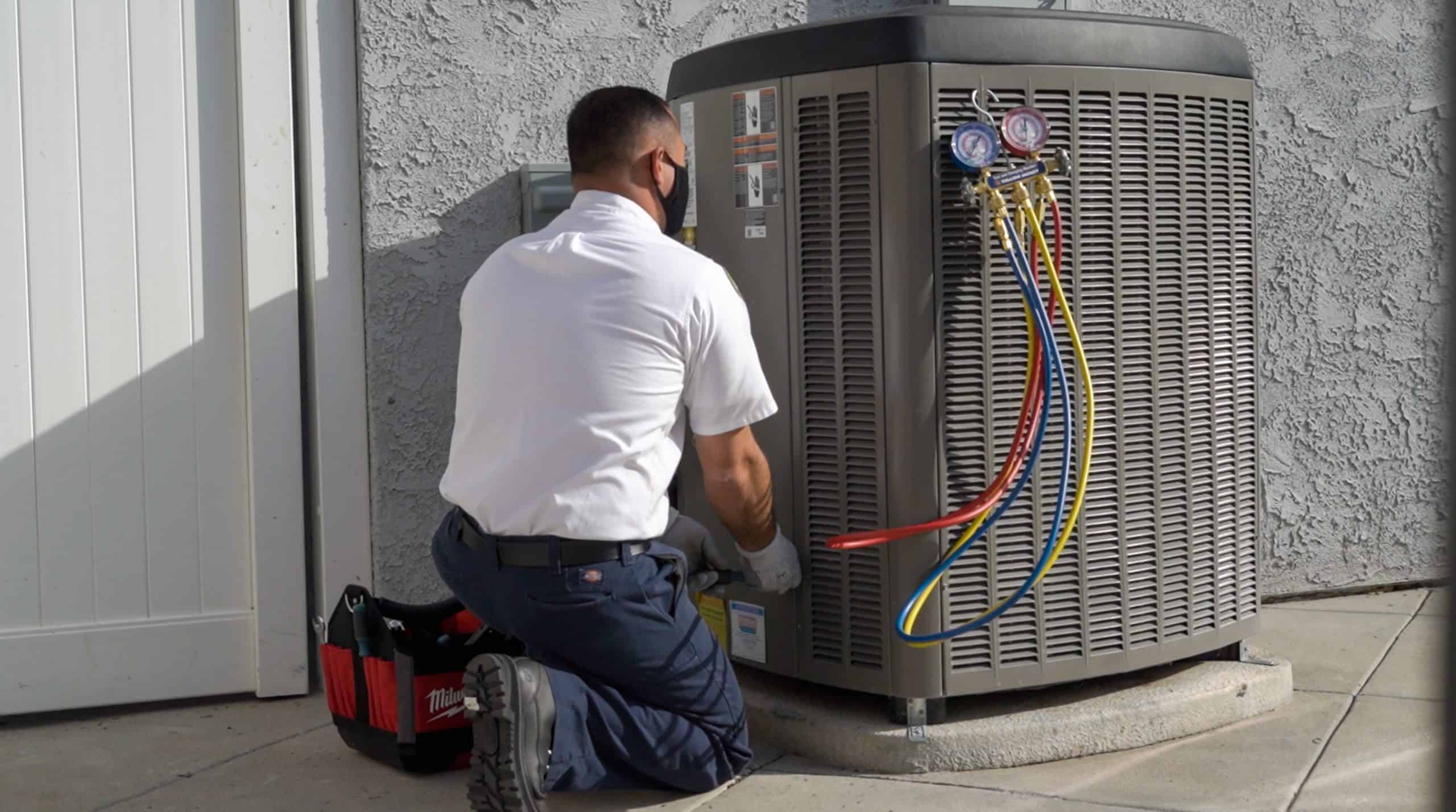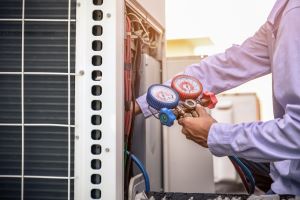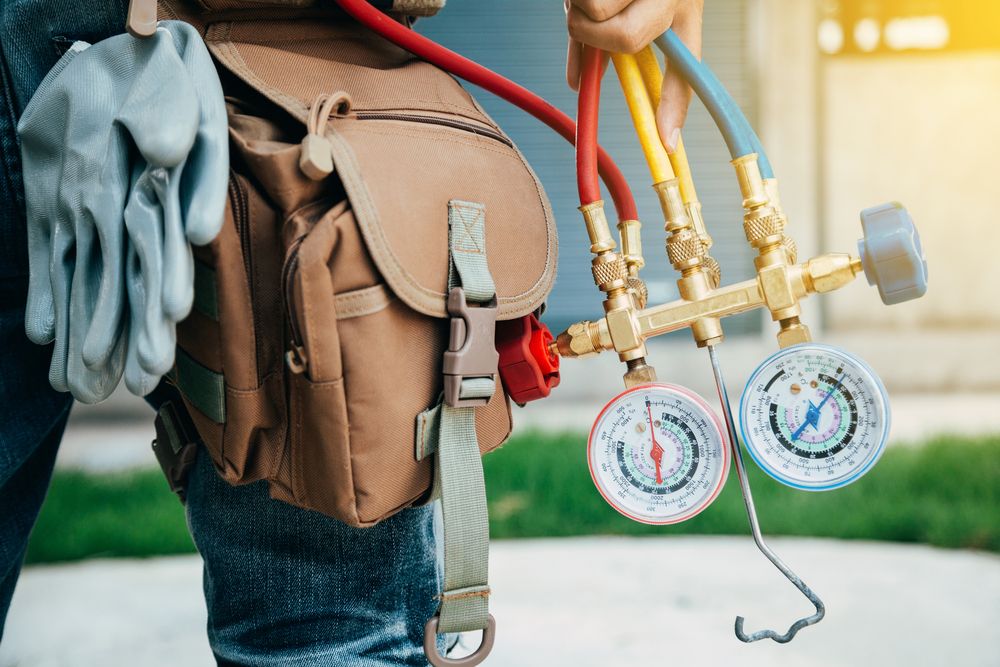Energy-Efficient Heating And Cooling Solutions to Minimize Energy Bills
As energy prices continue to climb, the value of energy-efficient A/c systems becomes progressively evident. These systems not just promise significant savings on energy costs however additionally contribute to an extra sustainable future by lessening power usage.
Advantages of Energy-Efficient Heating And Cooling Equipments
Energy-efficient heating and cooling systems supply various benefits that extend beyond plain cost savings. One substantial benefit is the minimized environmental effect. By consuming less power, these systems contribute to reduce greenhouse gas exhausts, assisting to battle climate adjustment and promote sustainability. This straightens with increasing social demands for environmentally friendly practices in residential and business setups.
Furthermore, energy-efficient a/c systems frequently offer improved comfort levels. A lot of these systems feature sophisticated modern technology that permits for far better temperature level control and boosted air top quality (DMAKS HVAC). This brings about a much healthier interior atmosphere, which is especially crucial for individuals with allergies or respiratory issues
Additionally, buying energy-efficient HVAC systems can enhance home value. As more customers focus on energy efficiency, homes and buildings outfitted with these systems might bring in greater quotes in the realty market.
Types of Energy-Efficient Cooling And Heating Options
Just how can house owners and services choose the most ideal energy-efficient a/c options for their demands? The marketplace uses a variety of energy-efficient cooling and heating systems, each created to improve comfort while lessening power usage.
One choice is the variable refrigerant flow (VRF) system, which successfully manages the temperature in numerous areas within a building. This system adjusts its refrigerant circulation to match the preferred temperature, bring about considerable energy financial savings.
Another preferred option is geothermal heatpump, which use the planet's steady temperature level to warm and cool spaces. By moving warm to and from the ground, these systems show excellent efficiency, especially in modest climates.
In addition, ductless mini-split systems provide an energy-efficient option for homes lacking ductwork. These systems enable zone-specific cooling and heating, minimizing energy waste in vacant locations.
Lastly, high-efficiency heaters and air conditioning unit, with innovative SEER and AFUE ratings, use reputable environment control while consuming less power than conventional versions. By evaluating these alternatives, homeowners and services can pick a heating and cooling system customized to their particular demands and energy effectiveness objectives.
Key Functions to Consider

Following, check out the type of compressor made use of in the system. DMAKS HVAC. Variable-speed compressors can try this site change their output to match the home heating or cooling down demand, leading to improved comfort and power cost savings contrasted to single-speed versions. Additionally, search for systems geared up with wise thermostats that use programmable settings and remote accessibility, permitting better control over energy consumption
One more important feature is the system's air filtration ability. High-efficiency filters can boost indoor air top quality and lower power usage by making certain the system operates effectively. Moreover, think about the kind of cooling agent used; modern systems usually employ environmentally friendly cooling agents that have a lower environmental impact.
Last but not least, make sure that the system works with zoning modern technology, which allows for personalized temperature control in different areas of your home, enhancing comfort while minimizing power use.
Tips for Selecting the Right System


Following, consider energy performance rankings, especially the Seasonal Power Efficiency Ratio (SEER) for cooling down systems and the Yearly Gas Use Efficiency (AFUE) for home heating systems. Greater scores indicate higher effectiveness, which can bring about substantial financial savings on utility costs gradually.
In addition, assess the kind of cooling and heating system that ideal fits your lifestyle and budget plan. Choices consist of air conditioning, ductless mini-splits, and heatpump, each with its own set of benefits and disadvantages.
Don't ignore the significance of correct setup and sizing; an inaccurately sized system can result in inefficiencies and raised wear. Consult with a professional Cooling and heating professional to acquire experienced suggestions customized to your home's special demands. This extensive technique will make sure that you select an energy-efficient a/c system that meets your requirements and budget efficiently.
Maintenance for Optimum Efficiency
When the ideal cooling and heating system is site web in location, continuous upkeep comes to be key to guaranteeing ideal performance and long life. A well-maintained system operates better, causing reduced power consumption and decreased utility expenses. Normal inspections and tune-ups ought to be scheduled at the very least two times a year-- once before the cooling period and once before the heating season.

Home owners ought to additionally be vigilant regarding checking their cooling and heating system's efficiency. Uncommon noises, fluctuating temperature levels, or increased power costs can suggest underlying concerns that require instant focus. see page By addressing these worries promptly, house owners can prevent expensive repair services and extend the lifespan of their systems.
Spending in an upkeep plan with a qualified professional not just boosts efficiency however additionally provides assurance, understanding that the system is running at its ideal. DMAKS HVAC. Regular maintenance is as a result essential for sustaining energy effectiveness and lowering overall operational costs
Conclusion
To conclude, energy-efficient cooling and heating systems present a viable service for decreasing utility expenses while improving convenience and air high quality. By including innovative modern technologies and alternatives such as geothermal warmth pumps and ductless mini-splits, residential property proprietors can attain substantial power financial savings and add to ecological sustainability. Mindful factor to consider of system attributes and recurring upkeep additionally makes certain optimum efficiency, making energy-efficient systems a sensible financial investment for both financial and environmental benefits.